National Taiwan Normal University
National Taiwan Normal University (NTNU; Chinese: 國立臺灣師範大學; pinyin: Guólì Táiwān Shīfàn Dàxué),[5] or Shīdà 師大. A top university in Taiwan and prestigious internationally, is an institution of higher education and normal school operating out of three campuses in Taipei, Taiwan. NTNU is the leading research institute in such disciplines as Education and Linguistics in Taiwan. NTNU was ranked 6th overall in Taiwan in 2018,[6] was internationally ranked in the 308th spot in 2018 QS World University Rankings,[7] 501–600th in 2018 Times Higher Education World University Rankings[8] and ranked in 900–1000th in 2018 Academic Ranking of World Universities,[9] and NTNU is widely recognized as one of Taiwan's comprehensive and elite higher education institutions. NTNU is affiliated with National Taiwan University and National Taiwan University of Science and Technology as part of the National Taiwan University System.[10] NTNU is an official member of AAPBS.[11]
國立臺灣師範大學 | |
 | |
Former name | Taihoku College (1922) Taiwan Provincial College (1946) Taiwan Provincial Normal University (1955) |
|---|---|
| Motto | 誠正勤樸[1] |
Motto in English | Sincerity, Justice, Diligence, and Simplicity[2] |
| Type | Public (National) |
| Established | 1922 |
| President | Cheng-Chih Wu (吳正己) |
Academic staff | 1,447 |
| Students | 16,077[3] |
| Undergraduates | 8,079 |
| Postgraduates | 7,503 |
| Location | Taipei (Main Campus & Gongguan Campus) & , New Taipei (Linkou Campus) |
| Campus | Urban: Main Campus & Gongguan Campus Rural: Linkou Campus |
| Colours | Blue and Red |
| Affiliations | National Taiwan University System (國立臺灣大學系統) AAPBS[4] UAiTED |
| Website | English, Chinese |
| National Taiwan Normal University | |||||||||||||||
|---|---|---|---|---|---|---|---|---|---|---|---|---|---|---|---|
| Traditional Chinese | 國立臺灣師範大學 | ||||||||||||||
| Simplified Chinese | 国立台湾师范大学 | ||||||||||||||
| |||||||||||||||
The university enrolls approximately 17,000 students each year. Approximately 1,500 students are international.[12]
History
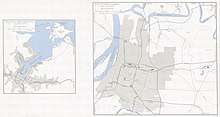
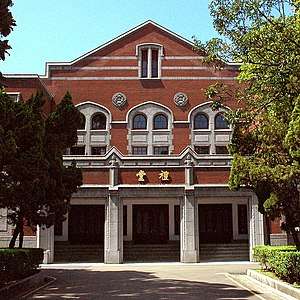
National Taiwan Normal University opened its doors in the early 20th century during Japanese rule in Taiwan. Taiwan's Japanese governors established the school as Taiwan Provincial College. Soon after they gave it the name Taihoku College (Taihoku is "Taipei" in Japanese). The school's purpose was to nurture a native educated class qualified to assist the government in matters of administration. Many buildings on the university's main campus date from the Japanese colonial period, including the Administration Building, the Lecture Hall, Wenhui Hall and Puzi Hall. Japanese architects incorporated features of the Neo-Classical, Gothic and Gothic Revival styles often encountered on European university campuses. A room in the Lecture Hall housed the traditional Japanese document that authorizes and formalizes campus construction.[13]
In 1946 China's Kuomintang government assumed control of Taiwan and redefined the school as Taiwan Provincial Teachers' College. Some school publications still display 1946 as the institution's founding date in reference to this regime change. A number of Taiwan's leading authors, poets, artists, educators, musicians, and researchers have passed through the university's doors as students and faculty. In 1956 the Mandarin Training Center opened its doors as an extension of the college. The school acquired its present name, National Taiwan Normal University, in 1967. By now the school had established itself as a recognized center of learning in arts, literature and the humanities; its fundamental mission, though, remained the preparation of teachers.
As Taiwanese society made its shift from authoritarian rule to democracy in the 1990s, the university saw its role transformed by passage of the 1994 Teacher Preparation Law. The law gave more schools responsibility for teacher training and set NTNU on its present course as a truly comprehensive university. New departments were created, course offerings and majors were expanded, and new faculty were hired. The university became a hub of international activity, enabling Taiwanese students to travel abroad, attracting international students to Taipei, and building exchange programs with dozens of sister institutions around the world.[12]
University structure
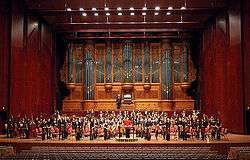

NTNU occupies three campuses in downtown Taipei: the historic Daan campus/main campus (home of the Administration Building, Main Library, Music & Lecture Hall, Language Building, Athletic Center); the Gongguan campus (home of the College of Science); the Linkou campus[12] and the University library campus hosting the school of continuing education.[14] Academic programs at NTNU are administered by 10 colleges: arts, education, international studies & social sciences, liberal arts, management, music, science, sports & recreation, and technology & engineering.
In 2006 the school published the following figures[12] for students enrolled and employees retained.
- Students enrolled: 11,055
- Undergraduate students: 6,942
- Graduate students: 4,113
- International students (including Culture Center): 1,499
- Full-time faculty: 693
- Part-time faculty: 470
- Staff: 492
The university also runs the Affiliated Senior High School of National Taiwan Normal University, a daughter institution for secondary-school students in Taiwan.
International programs
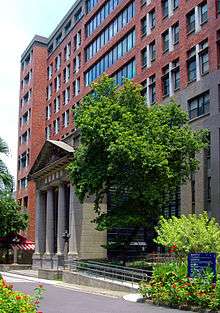
Internationally NTNU is best known for its Mandarin Training Center (formerly known as the Center for Chinese Language and Cultural Studies), a program founded in 1956 for the study of Mandarin Chinese to foreign students. The Mandarin Training Center represents one of the world's oldest and most distinguished programs for language study, attracting more than a thousand students from over sixty countries to Taiwan each year and making the Shida area of Taipei one of the city's most cosmopolitan.[12] Courses in language, literature, calligraphy, art and martial arts are offered in a series of three-month terms throughout the year, enabling international students to undertake language studies during summer breaks and within single semesters. The center also sponsors travel, hosts speech contests, and stages workshops and performances for a variety of East Asian arts. A Mandarin Training Center Alumni Association (MTCAA) has been operating since 1998.
Other international highlights recently at NTNU include the International Chemistry Olympiad hosted by the university in 2005 and the merger of NTNU with the University Preparatory School for Overseas Chinese Students in 2006. NTNU also participates in the Biodiversity Program of the Taiwan International Graduate Program of Academia Sinica. A new dormitory for NTNU international students is slated to open in 2024.[15]
NTNU nurtures a robust system of partnerships to enable this level of international study. Among the institutions that enjoy sister relationships with NTNU are the Universidade de Sao Paulo in Brazil, La Universidad Nacional de Asuncion in Paraguay, Georgetown University, Johns Hopkins University, Ohio State University, Pennsylvania State University, Radford University, Rutgers University, San Diego State University, San Francisco State University, University of California Los Angeles, University of Illinois at Urbana–Champaign, University of Iowa and University of Pittsburgh in the US, the University of Alberta, University of British Columbia and Simon Fraser University in Canada, the University of Glasgow and University of London in the UK, the Denis Diderot University and University of Poitiers in France, University of Bonn and University of Heidelberg in Germany, the Vienna University of Music and Performing Arts in Austria, the RSM Erasmus University in the Netherlands, the Nicolaus Copernicus University in Poland, and the Babes-Bolyai University in Romania, to name a few.[16] NTNU's connections in the Asia-Pacific region are particularly extensive, including dozens of academic institutions representing South Korea, Japan, Singapore, Thailand, Vietnam, Australia, and New Zealand.[17]
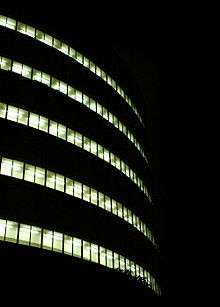
Ranking
| University rankings | |
|---|---|
| Global – Overall | |
| ARWU World[18] | 901-1000 (2018) |
| THE World[19] | 601–800 (2019) |
| QS World[20] | 308 (2019) |
| Regional – Overall | |
| THE Asia[21] | 74 (2018) |
| QS Asia[22] | 56 (2018) |
List of NTNU People
Notable faculty[23]
- Apo Hsu – Taiwanese-American conductor
- Chen Daqi – a polymath, politician and pioneer of modern psychology in China
- Chen Houei-kuen – painter
- Cornelius C. (Neil) Kubler – American professor and scholar of Mandarin, Taiwanese and other dialects of Chinese; former U.S. diplomat
- Kuo-En Chang – a computer education scholar, currently the president of the National Taiwan Normal University
- Howard S.H. Shyr – a law scholar and politician
- Hu Qiuyuan – an author, educator and politician.
- Lee Shih-chiao – painter
- Lee Tze-Fan – painter
- Liang Shih-chiu – the first Chinese scholar to single-handedly translate the complete works of Shakespeare into Chinese
- Li Meishu – Taiwanese artist who built the Zushi Temple
- Lin Yu-shan – painter
- Lo, Kii-Ming—musicologist and opera specialist from Taiwan
- Mou Zongsan – Chinese New Confucian philosopher
- Puru – artist, calligrapher, and member of the Qing Dynasty ruling Aisin Gioro family and grandson of the Daoguang Emperor
- Shan-Hua Chien – Taiwanese music scholar
- Su Xuelin – Chinese author and writer
- Tyzen Hsiao – Taiwanese composer of the neo-Romantic school
- Wen-Pin Hope Lee – Taiwanese Golden Melody Award-winning composer
- Xie Bingying – a female soldier and writer born in Loudi, Hunan
- Yeh Shin-cheng – a environment scholar and politician
- Yu Guangzhong – a writer, poet, educator, and critic
Notable alumni[23]
- Ang Ui-jin – Taiwanese linguist. He was the chief architect of the Taiwanese Language Phonetic Alphabet
- Apo Hsu (Hsu Ching-Hsin 許瀞心) - conductor
- Chang Chun-Yen – Taiwanese science education scholar
- Chen Hung-ling – Taiwanese badminton player
- Chen Kuei-miao – Taiwanese politician
- Cheng Shao-chieh – Taiwanese badminton player
- Chi Shu-ju – Taekwondo practitioner and Olympic medalist
- Chien Yu-chin – Chinese Taipei badminton player
- Chih-Ta Chia – Taiwanese science scholar
- Chong Yee-Voon – Malaysian writer
- Chuang Chi-fa – Taiwanese historian
- C.-T. James Huang – (PhD 1982) generative linguist, Professor and Director of Graduate Studies at Harvard, Fellow of the Linguistic Society of America (2015), recipient of the Linguistic Society of Taiwan's Lifetime Achievement Award (2014)
- Den-Wu Chen – Taiwanese historian, the former chairman of the Department of History at National Taiwan Normal University
- Evan Yo – Taiwanese Mandopop singer
- Fan-Long Ko – Taiwanese composer
- Gong Hwang-cherng – Taiwanese linguist
- Han Hsiang-ning – Chinese American artist
- Hsieh Chang-heng – Baseball player in the CPBL
- Hsu Shui-teh – Taiwanese politician
- Huang Kun-huei – Chairman of Taiwan Solidarity Union
- Huang Min-hui – Vice Chairperson of Kuomintang, former Mayor of Chiayi City
- Jackson T.-S. Sun – Taiwanese linguist
- Ku Chin-shui – Taiwanese aboriginal athlete
- Le Chien-Ying – Taiwanese archer
- Lee Chu-feng – Kinmen's politician
- Li Hsing – Taiwanese film director
- Lin Jeng-yi – Director of National Palace Museum
- Lin Mun-lee – Taiwanese art scholar
- Shara Lin – Taiwanese actress
- Tung-Tai Lin – a professor at the Graduate Institute of Mass Communication at National Taiwan Normal University.
- Man-houng Lin – Taiwanese historian, the first woman president of the Academia Historica
- Liu Yong – Taiwanese painter and essayist
- Lorene Ren – Taiwanese actress
- Lu Yen-hsun – Taiwanese professional tennis player
- Ma Sen – Taiwanese writer
- Paul Jen-kuei Li – Taiwanese linguist
- Peng Wan-ru – Taiwanese feminist
- Selina Jen – member of the Taiwanese girl group S.H.E.
- Su I-Chieh – Taiwanese professional basketball player
- Tien Lei – Basketball player
- Tseng Shu-o – Professional Soccer player in Australia
- Tyzen Hsiao – Taiwanese composer of the neo-Romantic school
- Uğur Rıfat Karlova – Turkish stand-up comedian
- Wai-lim Yip – Hong Kong and Taiwanese poet
- Wang Tuoh – Former Secretary-General of Democratic Progressive Party
- Wang Jin-pyng – President of Legislative Yuan
- Wong Chin-chu – Former Magistrate of Changhua County, former Minister of Council for Cultural Affairs
- Wu Ching-ji – Taiwanese educator
- Cheng-Chih Wu – Taiwanese computer science education scholar, currently the vice president of the National Taiwan Normal University
- Xi Murong – Taiwanese poet and painter
- Yang Chih-liang – Taiwanese politician
- Yuan Shu-chi – Taiwanese archer
Mandarin Training Center alumni
- Richard Bernstein – American journalist
- March Fong Eu – American politician
- Andrew Fastow – former CFO of Enron
- Howard Goldblatt – American literary translator
- Imre Hamar – Hungarian scholar of Chinese studies
- Ryutaro Hashimoto – former Prime Minister of Japan
- Jon Huntsman, Jr. – former United States Ambassador to Singapore from 1992 to 1993, and China from 2009 to 2011; current U.S. Ambassador to Russia
- Koichi Kato – former government minister of Japan
- Pierre Ryckmans – Belgian-Australian writer, essayist and sinologist
- Kevin Rudd – former Prime Minister of Australia
- Chie Tanaka – Japanese model and actress
- Richard Vuylsteke – President of the American Chamber of Commerce in Hong Kong
- Stephen H. West – American sinologist
Nomenclature
The standard abbreviated reference to National Taiwan Normal University in English is the acronym NTNU. The standard abbreviated form in Mandarin Chinese is the portmanteau Shi1da4. Romanized as "Shida", this form appears transliterated in place names associated with the campus: Shida Road, Shida Night Market, Shida Bookstore, and the like.
The word normal in the school's name perpetuates an English usage of the term that, if archaic in some countries, remains common in Asia. A "normal school" trains future teachers in educational norms.
MTC is the standard acronym for the Mandarin Training Center.
See also
References
- 校訓 [School Motto] (in Chinese). NTNU. Retrieved 2014-06-24.
- "Classroom Buildings(Cheng)". NTNU. Archived from the original on 2005-02-04. Retrieved 2014-07-15.
- "NTNU-About Us".
- "::: Association of Asia-Pacific Business Schools".
- The name of the university is translated using Chinese word order. By English grammar rules, it is National Normal University of Taiwan.
- "All 124 Universities in Taiwan | Rankings & Reviews 2018". LanguageCourse.Net. Retrieved 2018-11-20.
- "National Taiwan Normal University". Top Universities. 2015-07-16. Retrieved 2018-11-20.
- "National Taiwan Normal University". 2019-04-10.
- "ARWU World Top 500 Candidates | ARWU World University Rankings 2018 | Academic Ranking of World Universities 2018 | Top 500 universities | Shanghai Ranking – 2018". www.shanghairanking.com. Retrieved 2018-11-20.
- 國立臺灣大學系統. triangle.ntu.edu.tw (in Chinese). Retrieved 2018-08-10.
- "::: Association of Asia-Pacific Business Schools". www.aapbs.org (in Korean). Retrieved 2018-11-20.
- Exploring the World at NTNU Accessed 2006-12-08
- Public historical marker at NTNU Lecture Hall, Viewed 2007-08-04
- Hao-Yu, NTNU Extension, School of Continuing Education: Wu. "國立臺灣師範大學進修推廣學院". www.sce.ntnu.edu.tw. Retrieved 2018-11-20.
- https://focustaiwan.tw/culture/202001140012 'NTNU to build new dorm for international students', Focus Taiwan, 2020.01.14
- school website, NTNU. "Partner Institutions". NTNU school website.
- List of Partner Institutions Accessed 2015-09-03
- Academic Ranking of World Universities 2018
- Times Higher Education World University Rankings 2019
- 2019 QS World University Rankings
- Times Higher Education Asia University Rankings 2018
- 2018 QS Asian University Rankings
- "NTNU-Resources&Offices". en.ntnu.edu.tw. Retrieved 2018-08-10.
External links
| Wikimedia Commons has media related to National Taiwan Normal University. |
- National Taiwan Normal University official website (in Chinese and English)